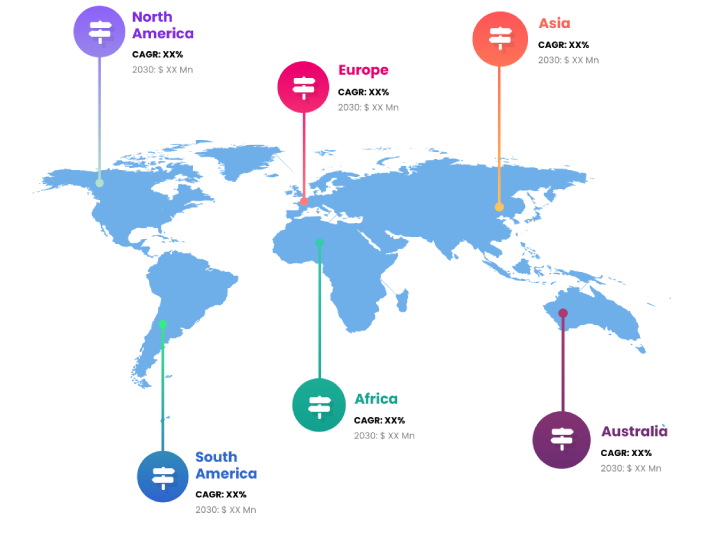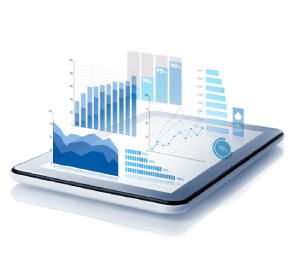
There has been a dramatic shift in the agricultural technology business, or agritech, throughout the last several decades. The convergence of agricultural and modern technology is a response to the pressing problems confronting the world's food and farming industries. Agritech encompasses a wide range of innovations, including precision farming, data analytics, automation, and biotechnology. One of the main reasons for the agritech boom is the need to increase food production in a sustainable way due to the growing global population. Farmers are embracing modern technologies to enhance agricultural operations, reduce resource waste, and boost crop yields. One example is the use of drones and GPS-guided tractors, which not only reduce input costs but also enable precision planting and harvesting.
Farmers can also benefit from data-driven solutions since they provide them with actionable insights into weather patterns, soil quality, and crop yields. Biotechnology has had a significant role in making genetically modified crops more resistant to pests and bad weather, which in turn increases food security. In order to promote inclusive growth in the agricultural business, the agritech market has expanded beyond industrial-scale farming to assist smallholder farmers as well.
Agritech encompasses a diverse array of technologies that find widespread use in many agricultural contexts. The overarching objective of agricultural technology is to substantially boost yield and profitability rates through the incorporation and application of exceptionally cutting-edge technologies. Modern agricultural technology has gained popularity due to its ability to significantly lessen the prevalence of human-caused risks and defects seen in conventional farming tools and supplies.
Agricultural and technical breakthroughs are just two of the many applications of agritech. Producing more food with the same amount of land or less input is the common goal of all these agritech systems. Urban farming refers to the process of cultivating crops for commercial use in urban areas, whether it be on rooftops of buildings or even underground. While there are other variations on urban farming, the two most common are vertical farming and urban farming. Agricultural technology helps farmers save time and money by automating operations and reducing the need for manpower, the most expensive input in farming.
Worldwide, the agritech industry felt the effects of the COVID-19 pandemic. The global spread of the COVID-19 pandemic is having an effect on various businesses. Businesses and suppliers in the agriculture industry have been hit hard by the outbreak. As a result of the global agritech market's slowdown caused by the COVID-19 pandemic, the distribution of high-quality fruits and vegetables is also hindered.
Utilizing cutting-edge technology like the Internet of Things (IoT) and the cloud would incentivize farmers to embrace modern agricultural ecosystems, as digitization has increased the effectiveness of connections between farms. The following are a few of the benefits offered by agritech: agribusiness marketplaces, bioenergy and biomaterials, software for farm management, sensing and the internet of things, farm robotics, machinery and equipment, midstream technologies, and innovative agricultural systems. A number of notable technologies are receiving substantial investments in agricultural technology, including sensing and Internet of Things (IoT) goods, innovative farming and farm management systems, and agricultural biotechnology. The expansion of this component is being driven, in part, by a surge in agritech firms and, secondarily, by the widespread adoption of sensor-based technology.
Various factors are coming together to change the face of agriculture, and this is what makes the agritech sector unique. The urgent need to address the challenges posed by a growing global population, shifting weather patterns, and diminishing resources is at the heart of these processes. One factor propelling the agritech industry is the increasing prevalence of digital technologies. Farmers are utilizing data analytics, internet of things technologies, and artificial intelligence to simplify their operations. Precision agriculture, made possible by these technologies, increases yields while decreasing waste through the careful use of resources. There is a strong correlation between environmental sustainability and the development of the agritech business.
Innovations in organic farming, water management, and renewable energy have resulted from a renewed emphasis on sustainable agricultural practices. Biotechnology R&D has been bolstered by the need for food security and adaptation to climate change. To create drought-resistant, disease-tolerant, and high-yielding plant varieties, scientists are turning to genetically modified crops and innovative breeding techniques. Thanks to start-ups and venture financing, entrepreneurs are finding creative ways to help farmers, whether they're working on a large or small scale. The rapid expansion of the market is being driven by this influx of capital. Governments rely heavily on regulatory and policy frameworks in their pursuit of a sustainable innovation-safe balance. Trade agreements and tariffs have the potential to significantly affect the dynamics of the global agritech business.
Report Coverage
Global Agritech research report categorizes the market for global based on various segments and regions, forecasts revenue growth, and analyzes trends in each submarket. Global Agritech report analyses the key growth drivers, opportunities, and challenges influencing the global market. Recent market developments and Agritech competitive strategies such as expansion, product launch and development, partnership, merger, and acquisition have been included to draw the competitive landscape in the market. The report strategically identifies and profiles the key Agritech market players and analyses their core competencies in each global market sub-segments.
| REPORT ATTRIBUTES | DETAILS |
|---|---|
| Study Period | 2017-2030 |
| Base Year | 2022 |
| Forecast Period | 2022-2030 |
| Historical Period | 2017-2021 |
| Unit | Value (USD Billion) |
| Key Companies Profiled | ARSR Tech, AeroFarms, Apollo Agriculture, Crofarm Agriproducts Pvt Ltd, Conservis, Indigo Ag, Inc., LettUs Grow Ltd., Pivot Bio, AgBiome, Inc., Ceres Imaging, AgWorld, Hortau, Harvest Automation, Farmers Business Network, amongst others. |
| Segments Covered | • By Product |
| Customization Scope | Free report customization (equivalent to up to 3 analyst working days) with purchase. Addition or alteration to country, regional & segment scope |
Key Points Covered in the Report
- Market Revenue of Agritech Market from 2021 to 2030.
- Market Forecast for Agritech Market from 2021 to 2030.
- Regional Market Share and Revenue from 2021 to 2030.
- Country Market share within region from 2021 to 2030.
- Key Type and Application Revenue and forecast.
- Company Market Share Analysis, Agritech competitive scenario, ranking, and detailed company
profiles. - Market driver, restraints, and detailed COVID-19 impact on Agritech
Market
Competitive Environment:
The research provides an accurate study of the major organisations and companies operating in the global Agritech market, along with a comparative evaluation based on their product portfolios, corporate summaries, geographic reach, business plans, Agritech market shares in specific segments, and SWOT analyses. A detailed analysis of the firms' recent news and developments, such as product development, inventions, joint ventures, partnerships, mergers and acquisitions, strategic alliances, and other activities, is also included in the study. This makes it possible to assess the level of market competition as a whole.
List of Major Market Participants
ARSR Tech, AeroFarms, Apollo Agriculture, Crofarm Agriproducts Pvt Ltd, Conservis, Indigo Ag, Inc., LettUs Grow Ltd., Pivot Bio, AgBiome, Inc., Ceres Imaging, AgWorld, Hortau, Harvest Automation, Farmers Business Network, amongst others.
Primary Target Market
- Market Players of Agritech
- Investors
- End-users
- Government Authorities
- Consulting And Research Firm
- Venture capitalists
- Third-party knowledge providers
- Value-Added Resellers (VARs)
Market Segment:
This study forecasts global, regional, and country revenue from 2019 to 2030. INFINITIVE DATA EXPERT has segmented the global Agritech market based on the below-mentioned segments:
Global Agritech Market, By Type
Biotechnology and Biochemical
Big Data and Analytics
Sensors and Connected Devices
Mobility
Others
Global Agritech market, By Application
Irrigation
Production and Maintenance
Supply Chain
Marketplace
Others
Global Agritech Market, By Sector
Agriculture
Smart Agriculture
Precision Farming
Agrochemicals
Biotechnology
Indoor Farming
Others
Global Agritech market, Regional Analysis
- Europe: Germany, Uk, France, Italy, Spain, Russia, Rest of Europe
- The Asia Pacific: China,Japan,India,South Korea,Australia,Rest of Asia Pacific
- South America: Brazil, Argentina, Rest of South America
- Middle East & Africa: UAE, Saudi Arabia, Qatar, South Africa, Rest of Middle East & Africa
You will get in-depth and extensive agritech market market research and competitor analysis for your business to help you develop more profound insights into the agritech market Market.
Through INFINITIVE Data Expert is a professional Market Research services, I will identify the agritech market market size, demand & opportunities, growth rate, and target audience with a comprehensive analysis of your competitors.



